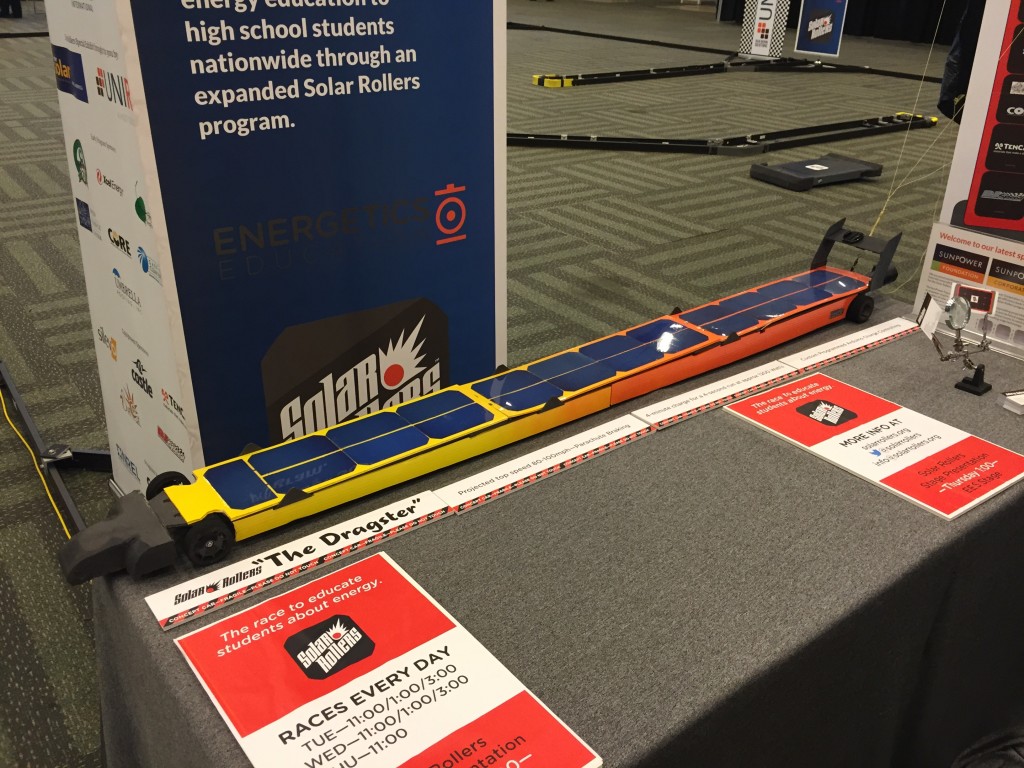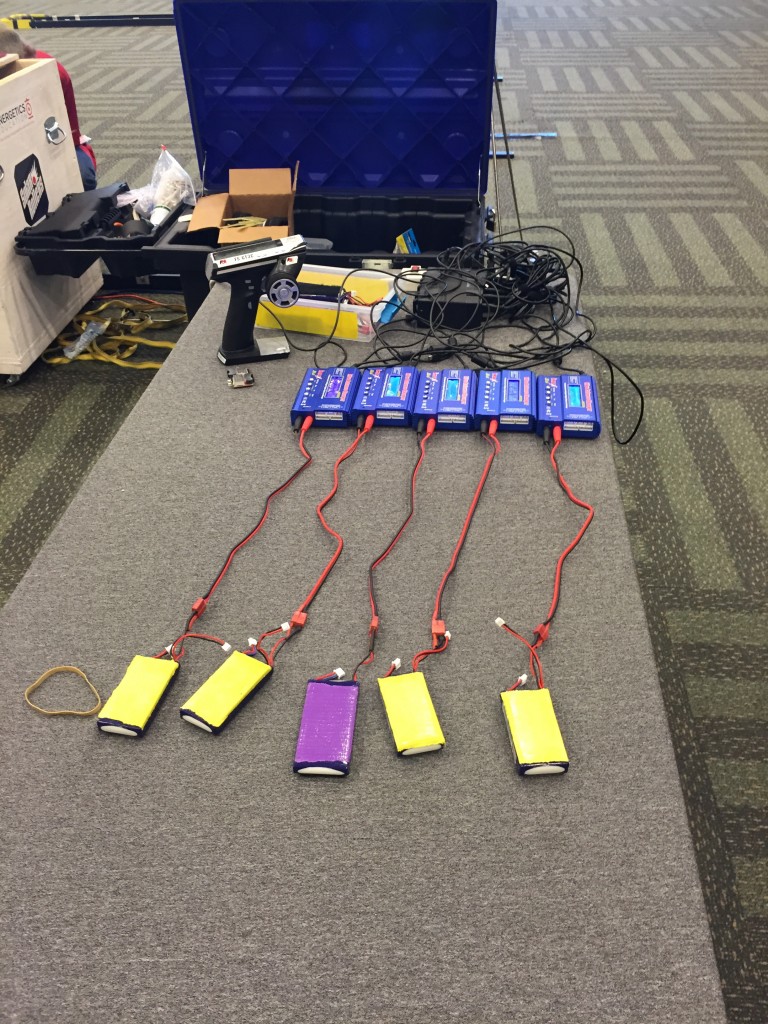In the iPhone age we’re not repairing things or building things from scratch any longer. Manufacturers build us preconfigured gizmos and do their best to make them opaque boxes we can’t open or hack on. That would put us at the mercy of the manufacturers, and leave dumbing down society to the point of being unable to understand the machines around us, etc. At the same time we have an environmental crisis unfolding which demands we build a whole different energy system paradigm or else we’ll fry the planet.
With that last thought in mind I went to Intersolar US 2015 last week – a large trade show focusing on the solar industry. Little did I expect to find an electric vehicle racing event in the back of the exhibit hall.
I’ve gone to way more than my fair share of electric vehicle races and even had tried to launch a news site to cover just electric vehicle racing. I’m happy to see electric racing because it’s what’ll evaporate the slow-boring-ugly-golf-cart stigma that keeps some people from buying electric cars. But what I found at Intersolar simply astonished me with what an excellent idea it is.
What we’re seeing here is little R/C controlled cars with solar panels and optionally powered by a small battery. Listen to the sound track and it’s clear that enough is here to turn up the competition factor.
These cars are made, as kits, by Solar Rollers.![]() The kits are sold to high schools, with each school organizing a team who will assemble the cars then come to races.
The kits are sold to high schools, with each school organizing a team who will assemble the cars then come to races.
The race cars are primarily meant to run solely off of solar power, with no battery. At a Solar Rollers event they’ll run several race classes including just solar power, or solar power with a battery. Because this demo event was being run indoors, the cars were running on battery power. The packs are very small, the sort used for R/C vehicles.
By assembling the cars themselves, the students learn the basics of solar panels, electric motors, electric motor controllers, R/C control, and basic mechanics. They’re free to customize the cars as they see fit. Just getting to the starting line means they’ve learned a lot of useful technology knowledge.
In racing conditions (meaning there’s time pressure etc) the students then compete. But of course their car may break down during the race, meaning they’ll have to do field repairs (under time pressure) which ratchets up their technology learning opportunities. Along the way they get the fun of competition, the fun of working together as a team, etc.
The Solar Rollers racing is the flagship program of a non-profit called Energetics Education. Their mission statement is:-
Our mission is to inspire young people to develop knowledge in the field of energy and empower them to improve the world’s energy systems. We do so by providing highly engaging energy education programs that build technical skills, teamwork, self-confidence, ingenuity, and community.
The students are inspired through the Solar Rollers races to learn a whole lotta useful technology that, as it’s deployed widely, could change the energy systems driving our society.
Some of the students in their program have already gone on to engineering programs in college.
The organization needs lots of support to grow the program so that it’s a nationwide effort. Right now it appears to be limited to Colorado.

In addition to the regular race cars, Solar Rollers supports drag racing. This dragster even has a parachute to use as a brake.
- The USA should delete Musk from power, Instead of deleting whole agencies as he demands - February 14, 2025
- Elon Musk, fiduciary duties, his six companies PLUS his political activities - February 10, 2025
- Is there enough Grid Capacity for Hydrogen Fuel Cell or Battery Electric cars? - April 23, 2023
- Is Tesla finagling to grab federal NEVI dollars for Supercharger network? - November 15, 2022
- Tesla announces the North American Charging Standard charging connector - November 11, 2022
- Lightning Motorcycles adopts Silicon battery, 5 minute charge time gives 135 miles range - November 9, 2022
- Tesla Autopilot under US Dept of Transportation scrutiny - June 13, 2022
- Spectacular CNG bus fire misrepresented as EV bus fire - April 21, 2022
- Moldova, Ukraine, Georgia, Russia, and the European Energy Crisis - December 21, 2021
- Li-Bridge leading the USA across lithium battery chasm - October 29, 2021













